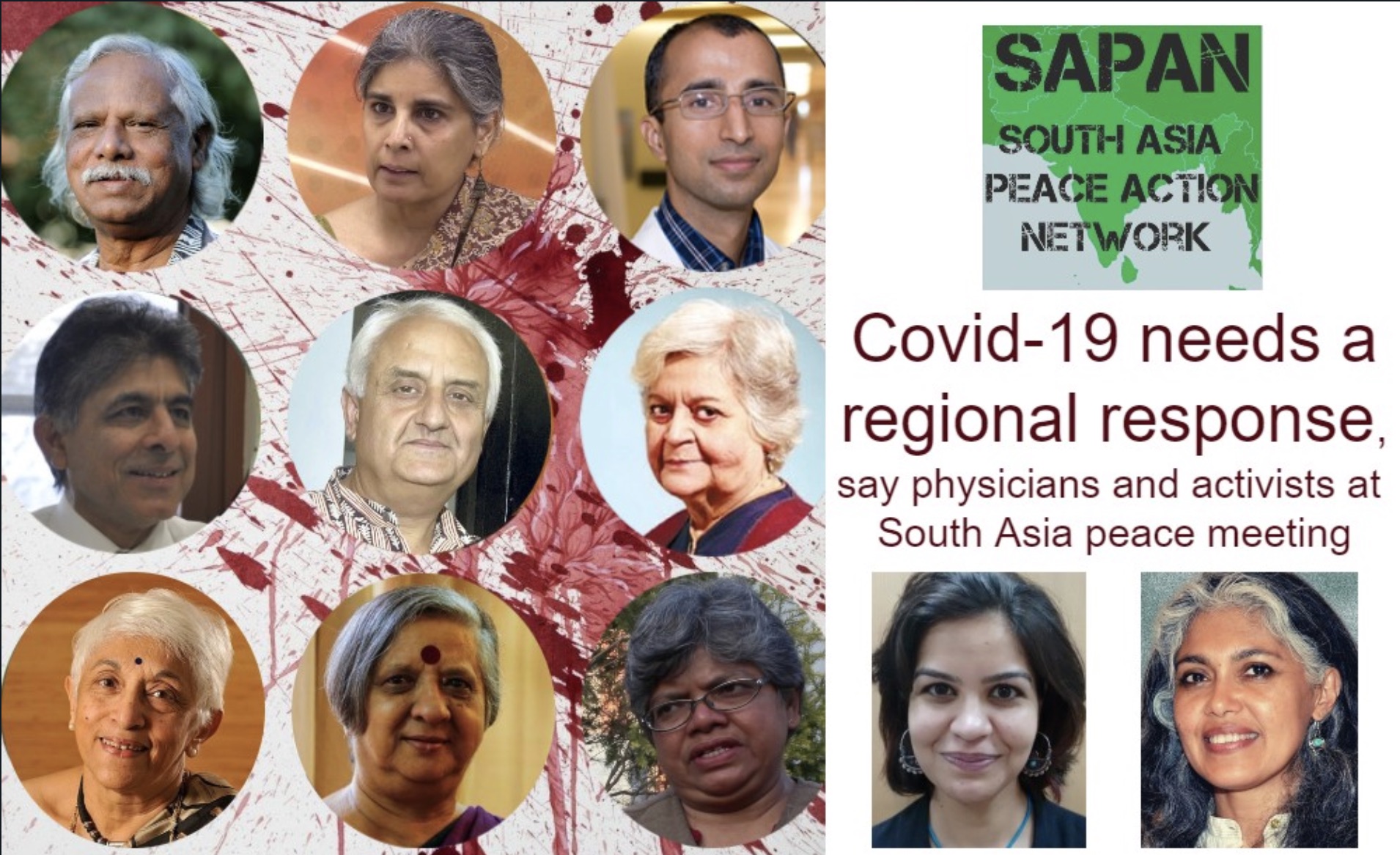Covid's regional threat needs regional response

As the Delta variant spreads death and disruption across South Asia, prominent public health experts have said Covid-19 cannot be defeated unless there is a region-wide approach.
The much more transmissible variant spread out from India, devastating Nepal, and is now hitting Bangladesh hard and the country went into hard lockdown this week.
“South Asian countries cannot go it alone, that is irrational,’’ said Zafrullah Chowdhury, renowned public health activist and Ramon Magsaysay awardee from Bangladesh who warned that the lockdown in his country will widen inequality in society.
He added, “It is irresponsible to impose lockdowns without providing food. Poverty has increased. There are 25 million more poor without food.”
Chowdhury was among physicians and health rights activists from the region who came together on 27 June for a webinar organised by the South Asia Peace Action Network (SAPAN).
The third in the series of SAPAN’s monthly public webinars themed ‘Imagine: Neighbours in Peace’, the meeting focused on health as an entry point to talk about South Asian regionalism and ‘Healthcare for all’.
Besides Chowdhury, participants included Anup Subedee, Vandana Prasad and Hamid Jafari of Pakistan. Speakers included Salima Hashmi, Khushi Kabir, Kanak Dixit, Lalita Ramdas, besides journalists Beena Sarwar, Mandira Nayar and others.
They discussed how the pandemic is affecting rural areas of South Asia, hurdles in its treatment, and access (or lack thereof) to vaccinations. They also discussed how Covid-19 has affected mental health, women and particularly in all the countries of the region.
The meeting took place as the region is battered by a devastating second wave of Covid-19, especially in India. With Delta plus virus mutation now detected in parts of the region, the possibility of another wave looms large even as vaccination rates are still low in all countries in the region.
Journalist Mandira Nayar in Delhi moderated the physicians’ panel with Zafrullah Chowdhury in Dhaka, infectious diseases specialist Anup Subedee in Kathmandu and public health activist Vandana Prasad also in Delhi. Hamid Jafari of Pakistan, who led the WHO team that eradicated polio, joined from his current posting in Jordan.
Chowdhury advocated challenging vaccine-producing countries and pushing South Asian governments to invest more in public health.

Anup Subedee from Kathmandu noted how the pandemic exposed systematic failures in many aspects of life in Nepal, including non-Covid healthcare, child immunisation and maternity care.
"Medical staff have been working at great personal risk of infection, threats of violence, lack of access to protective gear, and an unaddressed mental health crisis," Subedee said.
Participants also noted that the pandemic has particularly hit women hard.
“Domestic violence has increased,” noted Prasad. Women often lack control over finances, are primary caregivers and shoulder the responsibility of caring for the ill. The pandemic has pushed women further into the margins, she said, adding that there is also a “gender dimension to the access of vaccines”.
She urged doctors to enter the peace activism domain, because the poor all over are at the brink of disaster. She added that the pandemic had disproportionately affected women, Dalits, indigenous people, and other minorities.
“Telemedicine is important, but we must not lose focus on the need for ground-based public health to begin with,” she said.
Doctors at the meeting endorsed the need for greater cooperation and collaboration across borders. Participants called on the governments to allow free flow of critical equipment and medical personnel across borders. Prime Minister Narendra Modi had floated the idea of a SAARC medical visa for patients and for medical teams to assist during the pandemic – something that must be followed up.
The doctors also urged the international fraternity to push for a Trade-Related Aspects of Intellectual Property Rights, or TRIPS, waiver so that the Covid-19 vaccine production can be ramped up. “It is the way forward for vaccines for all,’’ asserted Prasad.
The South Asia Peace Action Network (SAPAN) is primarily a coalition of individuals and organisations aiming to take forward a peace agenda for the region, building on the work done by mentors and leaders over the last few decades.
SAPAN founder and curator Beena Sarwar shared the story of this network and her vision for an inter-generational, multi-sectoral, inter- and intra-regional coalition of individuals and organisations coming together in broad consensus for a one-point agenda.




